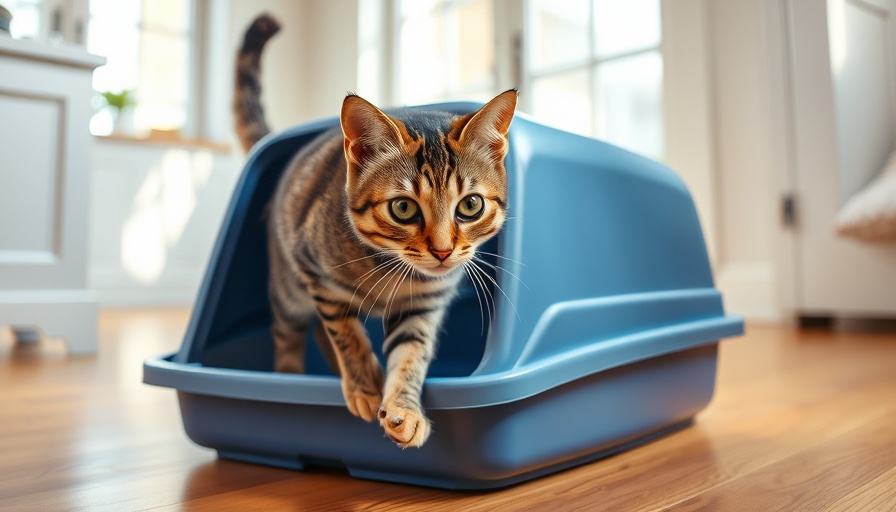
Understanding the Hidden Behavior of Cats
Many cat owners marvel at their pets' innate behaviors—one such behavior being the instinctive act of burying their poop. This seemingly simple habit is deeply rooted in feline instincts and offers windows into both the history of cats and their needs for comfort and safety.
The Litter Box: A Cat's Sanctuary
At home, the litter box serves as a cat's personal sanctuary where they feel safe doing their business. However, a clean, accessible, and quiet place is essential for them to thrive. Cats often bury their waste not just out of habit, but to uphold their instinctual desire for cleanliness and privacy. When a cat is uncomfortable, whether due to a dirty litter box or an unsuitable environment, it may refuse to cover its poop. This behavior change can serve as a significant indicator of how your cat is coping in its surroundings.
Instincts at Play: Survival Mechanisms
In their wild counterparts, burying waste serves the purpose of avoiding detection from predators and competitive rivals. Covering fecal matter helps avoid drawing attention and maintains an ecosystem of peace among the cats. This instinct remains intact even in indoor cats, allowing them to feel secure in their territory. A cat's refusal or reluctance to bury its poop may hint at underlying stress or discomfort, which shouldn't be taken lightly.
The Importance of Environment
The litter box's environment matters greatly. Factors such as the type of litter used, the box's cleanliness, and even the size can all influence whether a cat feels inclined to bury its waste. For multi-cat households, creating separate boxes can help minimize territorial disputes and make each feline feel secure. Addressing the small, simple changes can yield a more satisfied kitty who feels at home in their space.
Addressing Behavioral Changes
For new cat owners, you might wonder why some cats don't bury their poop. Early separation from their mother can rob a kitten of invaluable lessons related to litter box habits. Other explanations might involve asserting territory or discontent with their litter box setup. It can be beneficial to experiment with different forms of litter or box types to identify what best suits your pet's preferences. Additionally, joint pain in older cats can hinder their ability to dig, requiring close observation and potential veterinary advice.
A Candid Look at Cat Behavior
Understanding the factors affecting a cat’s desire to bury its poop will not only help in keeping your pet happy and healthy but will also facilitate a stronger bond with your feline companion. Paying attention to litter box habits is a crucial part of pet ownership that reflects your cat's overall well-being.
 Add Row
Add Row  Add
Add 




 Add Row
Add Row  Add
Add 


Write A Comment